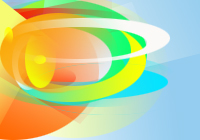|













































|
| |
 |
The
three most common types of depression are major depression,
dysthymia and bipolar disease:
Major
depression is manifested by a combination of symptoms
(see Symptoms below) that interfere with the ability to
work, sleep, eat and enjoy once pleasurable activities.
These symptoms occur without any apparent cause and deepen
and persist day-in and day-out for two weeks or longer.
Dysthymia
is marked by mild to moderate depressive symptoms that
last at least two years. People with this condition have
fewer symptoms than those with major depression, but the
symptoms last longer and develop more slowly. On average,
symptoms can last 16 years before there is a diagnosis.
Sometimes people with dysthymia also experience major
depressive episodes.
Bipolar
disorder, formerly called manic-depressive illness,
involves cycles of depression and elation (mania). Sometimes
the mood switches are dramatic and rapid, but most often
they are gradual. When in the depressed cycle, a person
can have any or all of the symptoms of depression. When
in the manic cycle, any or all manic symptoms (see Symptoms
below) may be experienced.

|
This health article is made available by
Dr. Ben Umeze MD a Medical Doctor. Medical Doctor office at 1423 Glover Str., BRONX, NY, 10462. Dr. Umeze is easy reachable from
Bronx, New York, College Point, Mount Vernon, Whitestone
| | | | |
|
| |
| | | [ | STATE OF THE ART MEDICAL DOCTOR CARE
ONE PATIENT AT A TIME | ] | |
|
| |
|
Click Here to E-mail This Page to a Friend
|
| |
| |
 |
|
|



